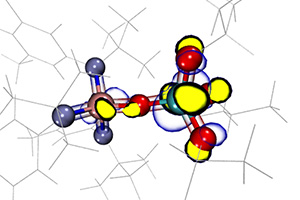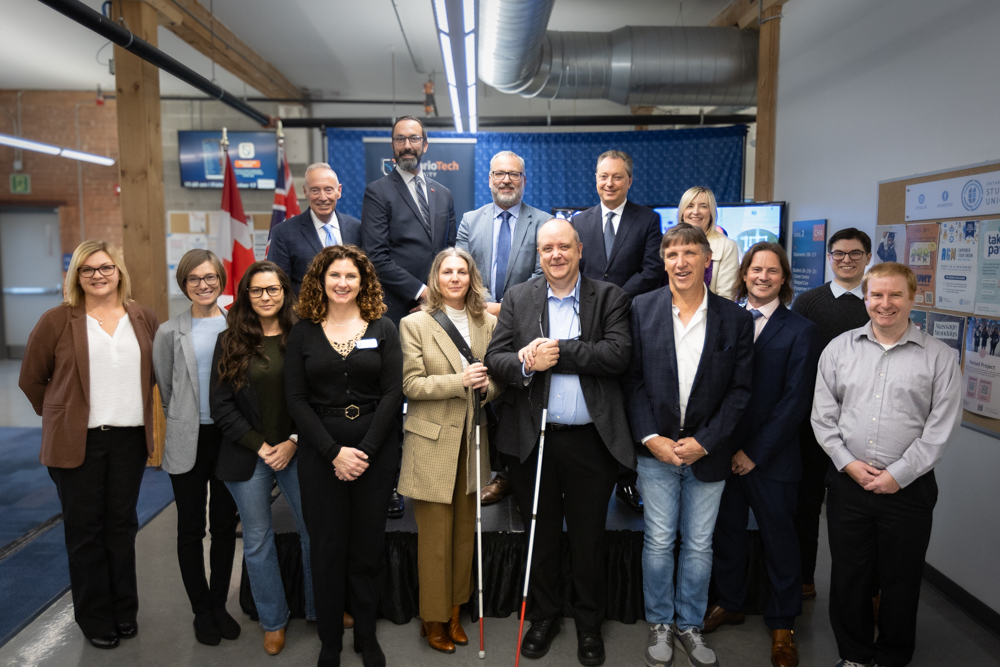Innovative UOIT research project taps into Canada’s fastest supercomputer
January 14, 2013

A new research project at the University of Ontario Institute of Technology (UOIT) will apply high-performance computing to the growing field of renewable energy. Dr. Isaac Tamblyn, an assistant professor of Physics in the Faculty of Science will lead a project to find answers to important questions about electron-matter interactions at the nanoscale – the tiny dimension at which the properties of materials tend to change.
Dr. Tamblyn’s research project entitled Nanoscale Heterogeneous Interfaces will produce results through use of Canada’s fastest supercomputer: the IBM BlueGene/Q system that is part of the Southern Ontario Smart Computing Innovation Platform (SOSCIP). UOIT is one of seven Ontario universities who are members of SOSCIP. Dr. Tamblyn’s research is one of 31 new projects the SOSCIP Research Consortium has announced support for.
“Using advanced computational infrastructure to solve applied problems in renewable energy science will highlight Ontario as a place to do cutting-edge research with world-class resources,” said Dr. Tamblyn. “Students working on this project will gain exposure and experience in solving societal problems using high-performance computing, and this knowledge will remain with them as they progress through their degrees and to the next stage of their careers.”
“UOIT is delighted to be part of SOSCIP, which provides us with access to the awesome computing power of the IBM BlueGene/Q as we tackle some of the 21st century’s biggest societal and scientific questions,” said Dr. Michael Owen, Vice-President, Research, Innovation and International, UOIT. “Dr. Tamblyn’s work relates to ongoing experimental and design work in the field of renewable energy. His research will help describe with unprecedented accuracy the electronic properties of interfaces present in next-generation devices designed for artificial photosynthesis and water splitting.”
The Blue Gene/Q platform, which is housed at the University of Toronto, is dedicated to collaborative research focused on solving critical challenges within cities, health, water, and energy systems, as well as in the area of agile computing.
About SOSCIP
The Southern Ontario Smart Computing Innovation Platform (SOSCIP) is a research consortium established in April
2012. The consortium pairs academic and industry researchers with high
performance computing to analyze big data and fuel innovation leadership in Canada within agile computing, health, water, energy
and cities. The consortium members include the IBM Canada Research and Development Centre as well as
seven Ontario universities, led by University of Toronto
and Western University. Other participants include McMaster University,
Queen's University, University of Ontario Institute of Technology, University
of Ottawa, and University of Waterloo.
About Ontario Tech University
A modern, forward-thinking university, Ontario Tech advances the discovery and application of knowledge to accelerate economic growth, regional development and social innovation. We inspire and equip our students and our graduates to make a positive impact in a tech-focused world. For us, it’s not only about developing the next tech breakthrough. Understanding and integrating the social and ethical implications of technology differentiates us as university. Learn more at ontariotechu.ca.
Media contact
Bryan Oliver
Communications and Marketing
Ontario Tech University
905.721.8668 ext. 2209
bryan.oliver@uoit.ca



